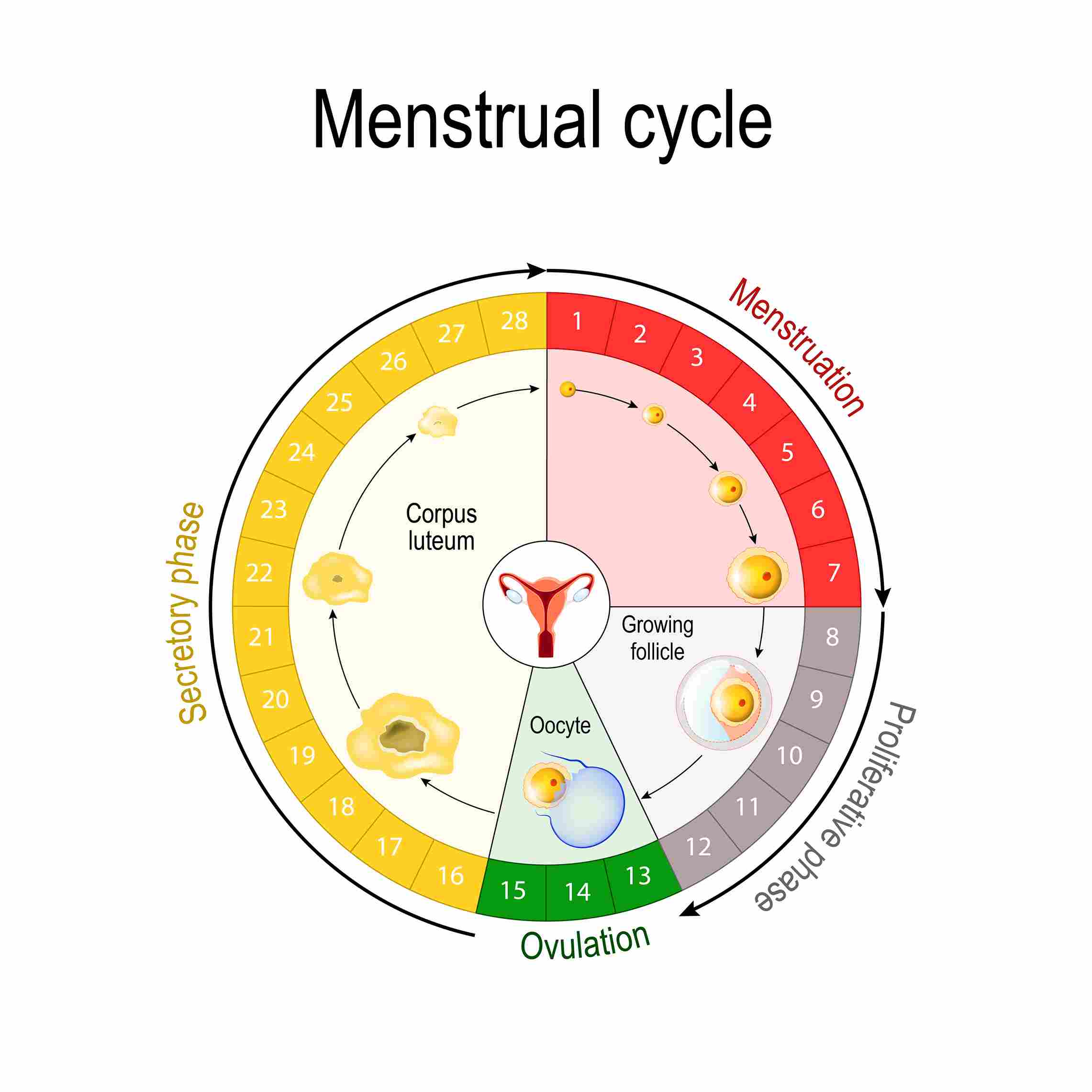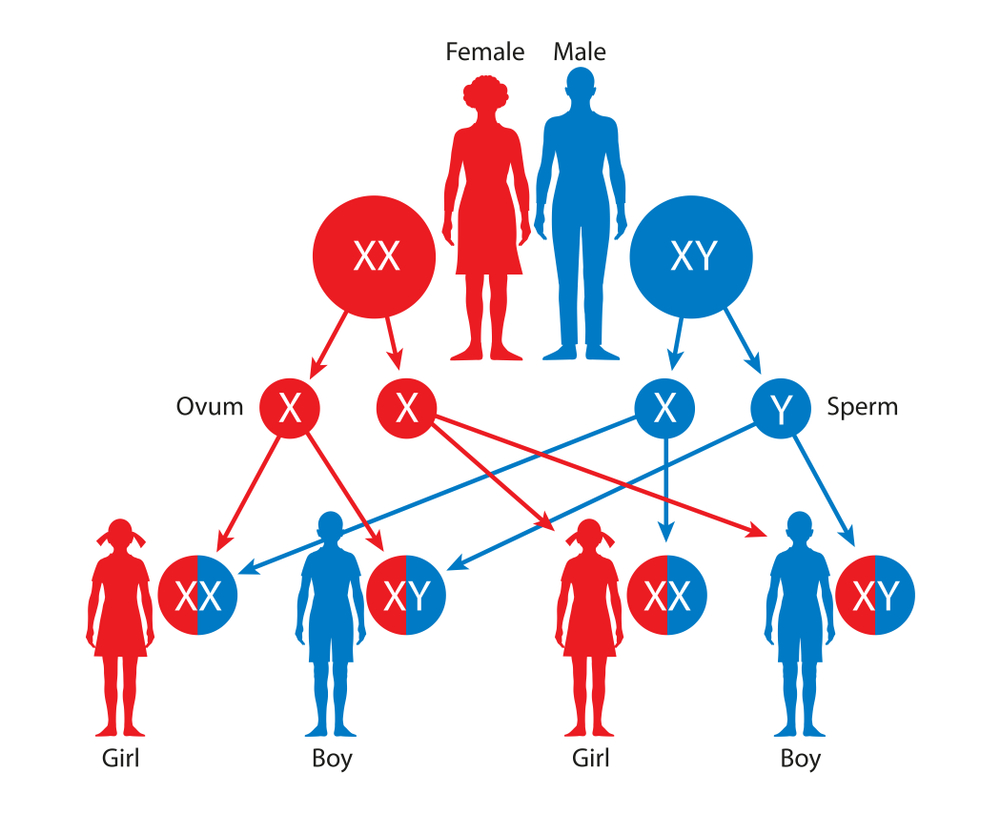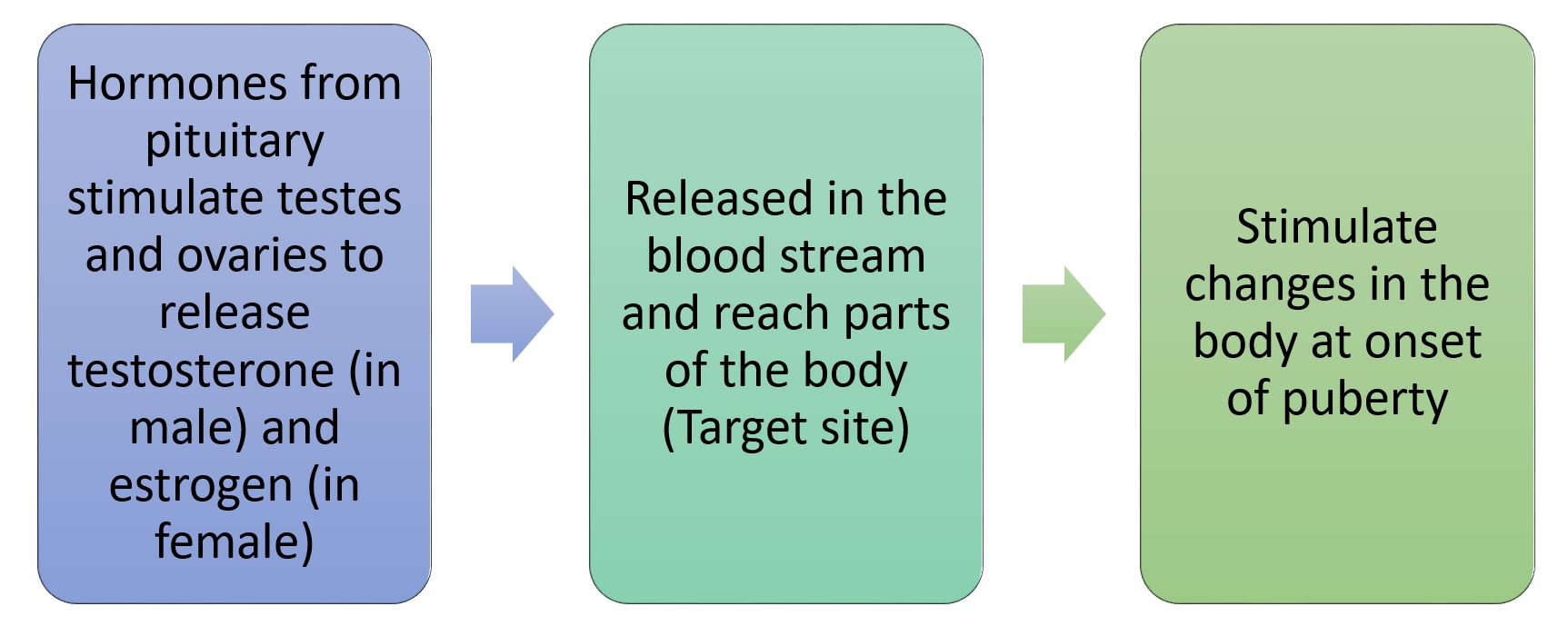Reaching the Age of Adolescence Class 8 Notes NCERT and MCQs
 23-08-2023
23-08-2023
 17:13 PM IST
17:13 PM IST
 Priyanka Chaudhary
Priyanka Chaudhary
The chapter discusses major changes during adolescence period, different hormones produced in the body and determination of sex in humans.
What is Adolescence?
The period of life, when the body undergoes changes, leading to reproductive maturity, is called adolescence. Children between the ages of 11 and 19 years are called adolescents or teenagers. Children gain height during adolescence. During adolescence, human body undergoes several changes, which mark the onset of puberty. Some of them are given below.
Changes at Puberty
- Change in shape of body- Muscles of the body grow more prominently in boys than girls. In girls, the region below the waist becomes wider. Development of breasts in girls take place.
- Sudden increase in height- Long bones elongate and make a person tall. The growth in height varies from individual to individual. Some may grow suddenly at puberty and then slow down, whole some may grow gradually.
- Growth of the reproductive organs- Male sex organs develop completely and the testes begin to produce sperms. Similarly, in girls, ovaries enlarge and start releasing mature eggs.
- Increased activity of sweat and sebaceous glands- Many youngsters get acne or pimples on the face at this time.
- Intellectual Development takes place during adolescence.
- Growth of hairs at various places on the body. Appearance of secondary sexual characteristics such as facial hair (moustache and beard) in boys.
At puberty, the voice box or the larynx begins to grow. Boys develop larger voice boxes. It is of small size and hardly visible in girls. Growing voice box in boys is visible as protruding part of throat called Adam’s apple. Usually, girls have a high pitched voice while boys have a deep voice. Puberty ends when an adolescent reaches reproductive maturity and becomes capable of reproduction.
Hormones
They control onset of puberty and maturity of reproductive parts. They are chemical substances secreted from endocrine glands. Endocrine glands release hormones directly into the blood stream.
Fig.1: Onset of puberty
Sex hormones
They include male hormone or testosterone and female hormone or estrogen. The production of sex hormones is under the control of another hormone secreted from an endocrine gland called pituitary gland.
- Male hormone: At the onset of puberty, testes release male hormone or testosterone. It causes the growth of facial hairs in boys.
- Female hormone: Female hormone or estrogen is produced by ovaries once puberty is reached in girls. It causes development of breasts. Milk secreting glands or mammary glands develop inside the breasts.
Hormones other than sex hormones
- Pituitary hormones: Pituitary gland secretes hormones which include growth hormone and hormones that make other glands such as the testes, ovaries, thyroids and adrenals secrete hormones. It is attached to brain.
- Thyroxine: Thyroid gland produces thyroxine. If thyroxine is not produced by thyroid gland, goiter disease develops.
- Insulin: Pancreas produces insulin. When pancreas does not produce insulin in sufficient quantities, diabetes develops.
- Adrenalin: Adrenal glands produce adrenalin. Adrenalin helps the body to adjust to stress when one is very angry, embarrassed or worried. Adrenal glands also secrete hormones which maintain the correct salt balance in the blood.
Role of hormones in metamorphosis of insects and frogs
Insect hormones control metamorphosis. Tadpole (larva of frog) cannot develop into adult frog if the water in which the tadpoles are growing does not contain sufficient iodine because thyroxine hormone controls metamorphosis in frogs and its production requires the presence of iodine in water.
Menstruation
The uterine wall in females prepares itself to receive the developing fertilised egg. In case there is no fertilisation, the thickened lining of the uterine wall breaks down and goes out of the body along with blood. This is called menstruation. It occurs once in about 28 to 30 days. Intitally the cycle may be irregular, but after sometime it becomes regular. Hormones control the menstrual cycle.

Fig.2: Menstrual Cycle
Menarche: The first menstrual flow starts at puberty and is called menarche.
Menopause: The menstrual cycle in females stop at the age of 45-50 years and is termed menopause.
Sex chromosomes
Out of the 23 pairs of chromosomes found in nuclei of cells of all human beings, two chromosomes are sex chromosomes. They are named as X and Y. Two X chromosomes are found in a female. A male has one X and one Y chromosome.
Sex determination
Sex of the unborn child depends on whether the zygote has XX or XY chromosomes. The gametes (egg and sperm) have only one set of chromosomes. The unfertilised egg always has one X chromosome. A sperm can have either X chromosome or Y chromosome. Sex of the unborn child depends on whether the egg is fertilized by a sperm carrying X chromosome or Y chromosome.

Fig.3: Sex Determination in Humans
Note: On right side of the image, it is shown that sperm contributes a Y chromosome to the egg (ovum) at fertilisation and zygote develops into a male child. On the left side of the image, a sperm containing X chromosome fertilises the egg, the zygote contains two X chromosomes and develops into a female child.
Reproductive Health
Adequate physical exercise, personal hygiene and a balanced diet are very essential during adolescence as the body is growing. Avoid packed or tinned snacks and do not replace them with regular meals. One should take bath at least once every day as the increased activity of sweat glands makes the body smelly and there are chances of catching bacterial infection. Girls should keep track of their menstrual cycle.
Transmission of HIV
HIV is transmitted from an infected person through any of the means given below.
- By sharing the syringes used for injecting drugs
- To an infant from the infected mother through her milk
- Through sexual contact with a person infected with HIV
Adolescence is a period of growing so do not get confused or feel insecure. If anyone offers you to take some drugs, say NO as they are addictive and harm the human body.
MCQs based on NCERT Class 8 Science Chapter 10: Reaching the Age of Adolescence
1. Reproductive age in women starts when their-
a. Menstruation starts
b. Breasts start developing
c. Body weight increases
d. Height increases
Ans. a
Explanation:
Reproductive age in women starts when their menstruation starts.
2. Which of the following is known as male hormone?
a. Testosterone
b. Estrogen
c. Thyroxine
d. Adrenaline
Ans. a
Explanation:
Testosterone is known as male hormone. It is released by testes at the onset of puberty.
3. Which of the following gland secretes hormones that make other glands secrete hormones?
a. Thyroid
b. Pituitary
c. Adrenal
d. Pancreas
Ans b
Explanation:
Pituitary gland secretes hormones that make other glands secrete hormones. It also secretes growth hormone.
4. Which of the following must be present in water for metamorphosis of tadpole into adult frog?
a. Phosphorus
b. Sulphur
c. Nitrogen
d. Iodine
Ans. d
Explanation:
Iodine must be present in water for metamorphosis of tadpole into adult frog. Tadpole (larva of frog) cannot develop into adult frog if the water in which the tadpoles are growing does not contain sufficient iodine because thyroxine hormone controls metamorphosis in frogs and its production requires the presence of iodine in water.
Frequently Asked Questions (FAQs) about Reaching the Age of Adolescence
What is menstruation?
What are sex hormones?
What is the term used for secretions of endocrine glands responsible for changes taking place in the body?
Share Blog

 Latest
Latest 
Comments